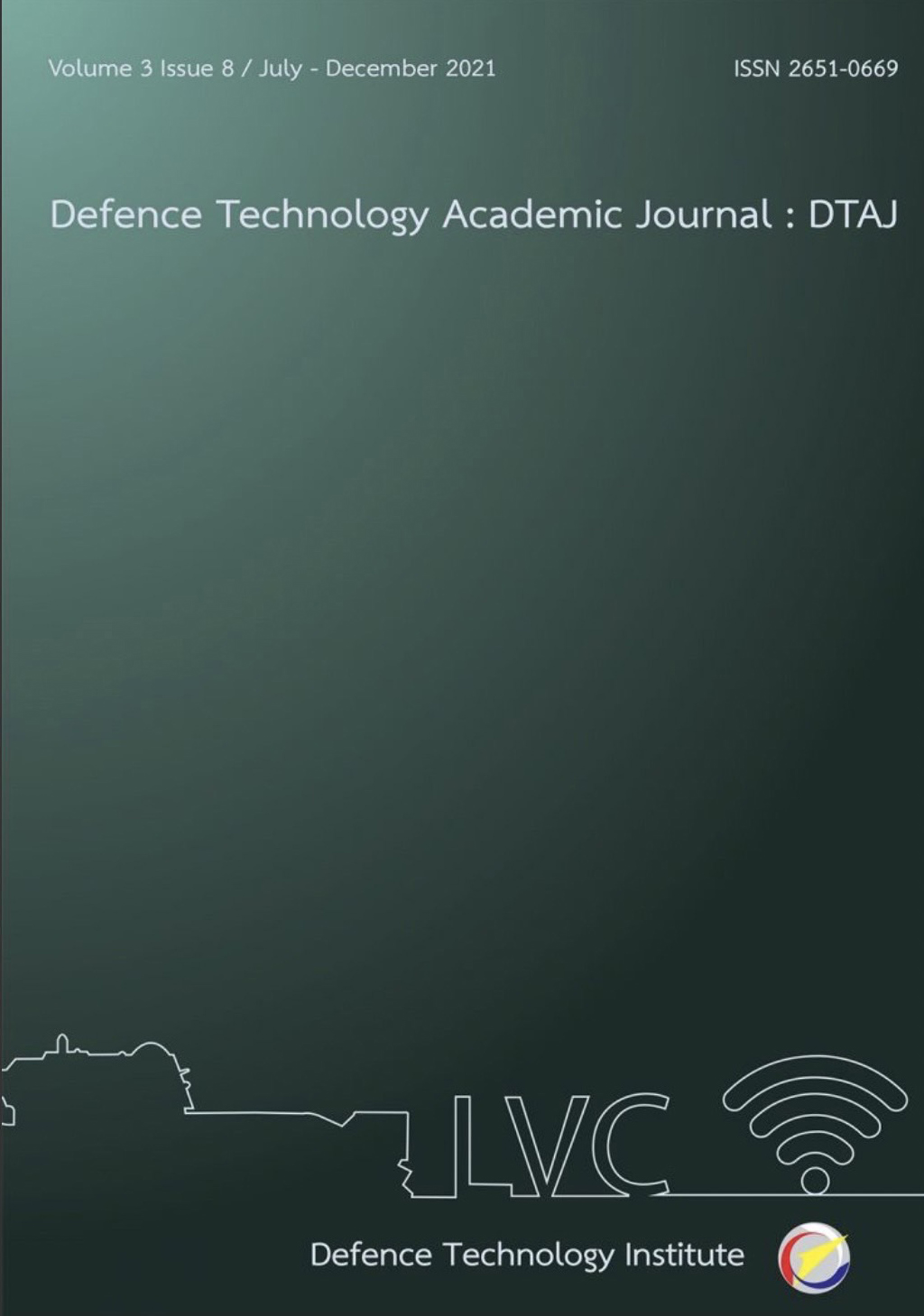Content awareness and satisfaction of DTI virtual seminar amid Covid-19
Main Article Content
Abstract
This research article aims at the analytical assessment of content awareness and the audience satisfaction of a virtual seminar held by Defence Technology Institute (DTI) while the world has been affected by the Covid-19 pandemic. The questionnaires were designed to transform qualitative data from 40 attendees of DTI key stakeholders attending the seminar into quantitative information. The quantitative analysis for statistical proof was proposed to achieve quantitative results that were followed by interpretation and discussion. Grounded in the classical test theory definition of reliability and the tenets basic to Likert-scale measurement methodology. As for the attendees satisfaction, quantitative research with at least one variable measured by a Likert-type scale, while the qualitative data will be analyzed through content analysis. The findings lead to the conclusion that the virtual seminar among Covid-19 was statistically successful and matched the objectives of the knowledge network. Moreover the organizer was successfully able to modify the seminar due to the Covid-19 pandemic ensuring the safety of the attendees and staff while maintaining the quality of the seminar, and further improving the attendees satisfaction.
Downloads
Article Details

This work is licensed under a Creative Commons Attribution-NonCommercial-NoDerivatives 4.0 International License.
Journal of TCI is licensed under a Creative Commons Attribution-NonCommercial-NoDerivatives 4.0 International (CC BY-NC-ND 4.0) licence, unless otherwise stated. Please read our Policies page for more information...
References
Janus, S. S. 2016. Becoming a Knowledge-Sharing Organization: A Handbook for Scaling up Solutions through Knowledge Capturing and
Sharing. World Bank Group. 187p.
Marques, B. A. R., & Amorim, M. 2016. Knowledge and innovation roles in business partnerships: The case of the Portuguese
insurance sector. KM Conference 2016. Lisbon. Portugal. pp. 51-63.
Cram, W. A., Proudfoot, J., & D'Arcy, J. 2017. January 4-7. How to evaluate knowledge within the organization: Research in progress
report. KM Conference 2015. Katowice. Poland. pp. 2-13.
Hernes, M., & Nguyen, N. T. 2018. Definition of a framework for acquiring and acquisition sub-processes in a collective knowledge processing in the integrated management information system. KM Conference 2018. University of Pisa. Italy.
Stojanović-Aleksić, V., Nielsen, J. E., & Bošković, A. 2018. Organizational prerequisites for knowledge creation and sharing: empirical
evidence from Serbia. Journal of Knowledge Management. 23(8). pp. 1543-1565. DOI10.1108/JKM-05-2018-0286.
Balle, A. R., Steffen, M. O., Curado, C., & Oliveira, M. 2018. Interorganizational knowledge sharing in a science and technology park: the
use of knowledge sharing mechanisms. Journal of Knowledge Management. 23(108), pp. 2016-2038. DOI 10.1108/JKM-05-2018-0328.
Geri, N., Kopolovich, O., & Winer, A. 2020. Replay-peak attention chart: A performance measure for improving online video lecture
design. Online Journal of Applied Knowledge Management. 8(1). pp. 1-15. https://doi.org/10.36965/OJAKM.2020.8(1)1-15.
Chou, S.-W. 2020. Understanding relational virtual community members’ satisfaction from a social learning perspective. Journal of Knowledge Management. 24(6). pp. 1425-1443. https://doi.org/10.1108/JKM-12-2019-0683.
Knowledge Management Division. 2020. THE SEMINAR OF KNOWLEDGE NETWORK FORUM 2020. Available: https://www.dtikmforum.
com/. 12 November 2020. (in Thai)
Likert, R. 1932. A technique for the measurement of attitudes. Archives of Psychology. pp. 1-55.
J., Robert Warmbrod. 2014. Reporting and Interpreting Scores Derived from Likert-type Scales. Journal of Agricultural Education, 55(5),
pp. 30-47


